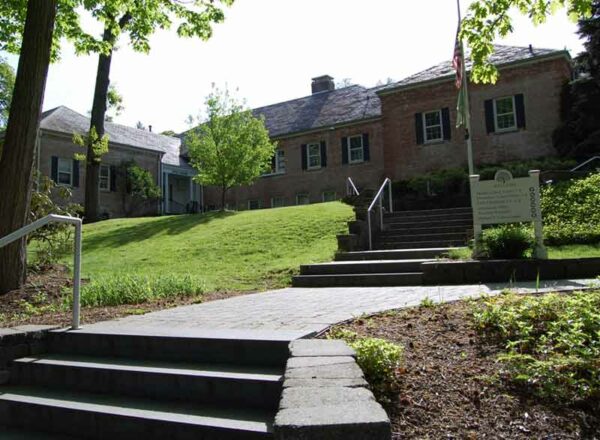By Beth Brennan, Lower School Head
The essence of who we are as a learning community at The Elisabeth Morrow School is our commitment to developing the whole individual. Social-emotional learning (SEL) is not a curriculum at EMS – it is our school culture. Grounded in our commitment to developing healthy, well balanced, and competent thinkers and leaders, our approach ensures that every student is healthy, safe, engaged, supported, and challenged. We call this program CORE SEL.
Relationships and how we communicate with one another are noticed the minute a student walks onto our campus. Every student is welcomed, made to feel valued, and our student-centered approach feels warm, supportive, and safe. Our interactions are guided by our school values of courtesy, consideration, cooperation, and compassion. The 4 Cs follow the stages of a child’s personal character development. The day begins with a simple act of courtesy: a greeting between a student and a teacher or administrator. This sets the tone for the consideration that will be shown in the classroom, hallways, playgrounds, concert spaces, and fields. As the child grows, courtesy and consideration make possible the cooperation necessary for advancing learning. And finally, a child who truly embraces courtesy, consideration, and cooperation becomes a young adult prepared to live a life of compassion.
The school environment is engineered to build confidence and self-awareness in our students. Our students see risk as an opportunity to learn because the space and learning are theirs. Their ideas are valued, and our students can put what they learn to use, develop a deep sense of themselves, and discover their passions that will become the underpinning of a fulfilling life.
Our faculty and staff support the development of SEL skills through their teaching practices. We follow the tenets of Responsive Classroom, a research-based approach to teaching that promotes academic and social-emotional competencies in children. All of our faculty are trained in SEL instruction, and best practices are visible in all that we do and help to establish a relationship-centered learning environment. Students build empathy and compassion through daily class meetings, all-school assemblies celebrating community traditions and grade-level accomplishments, and student-led community service opportunities. Direct instruction of skills of SEL is explicitly taught in weekly CORE SEL classes led by our school counselor and wellness director, counselor, divisional leaders, and our faculty and staff. As in all learning, children are ready for different information at the various points in their development. Drawing on several sources, our curriculum (age 3 through eighth grade) addresses the essential social-emotional competencies in age-appropriate ways.
In the lower school, students begin to recognize their emotions and apply the knowledge, attitudes, and skills necessary to understand and manage emotions, set and achieve goals, show empathy to others, and develop the skills and habits of mind to maintain positive relationships and make responsible decisions.
The competencies we focus on developing in children that enables them to make healthy decisions are: (Collaborative for Academic, Social, and Emotional Learning – CASEL)
- Self-awareness (skills for learning)
- Self-management (skills for managing emotions)
- Social awareness (develop supportive relationships and embrace diversity)
- Relationship skills
- Decision making (problem-solving)
Throughout their time in the lower school, students practice and build upon their knowledge of themselves, and what it means to be a classmate and friend. They practice working through social conflicts and develop strategies to manage their emotions. They learn to appreciate one another’s strengths and challenges and develop effective and compassionate ways to support one another both within our school community and beyond. Additionally, students will become aware of and embody the connection between their emotions, thoughts, and feelings by practicing mindfulness – intentionally being aware. Combined, mindfulness and SEL have the potential to transform people to have the tendencies to be more compassionate and ethical by nature.
There's No Better Time to Support Your Child's Education
Every time you donate to one of Elisabeth Morrow's dedicated funds, you help enrich the daily experiences of our community on campus. STEAM spaces are improved, library catalogues expanded, scholarships are funded, and teachers are hired. Every day, you can see the impact your generous donations have on campus.


